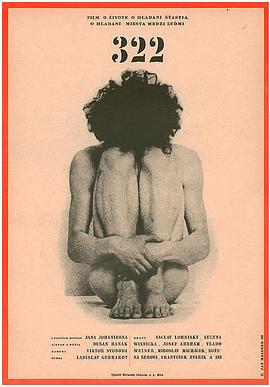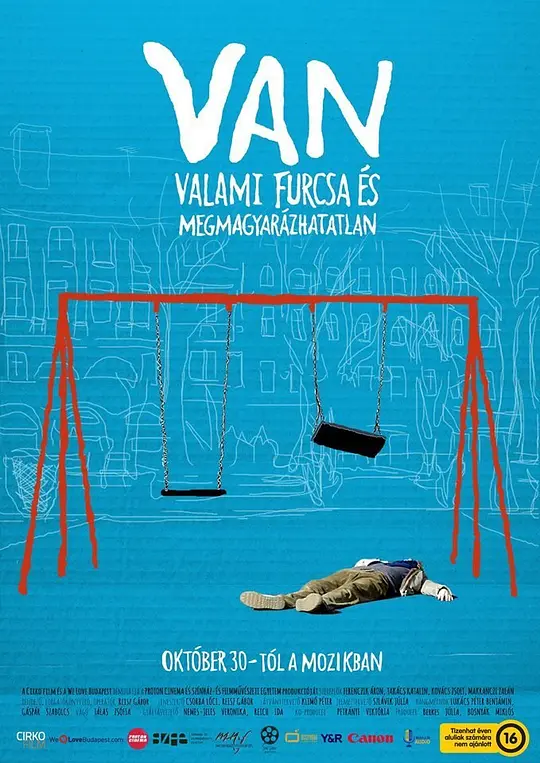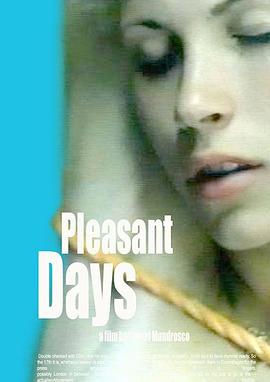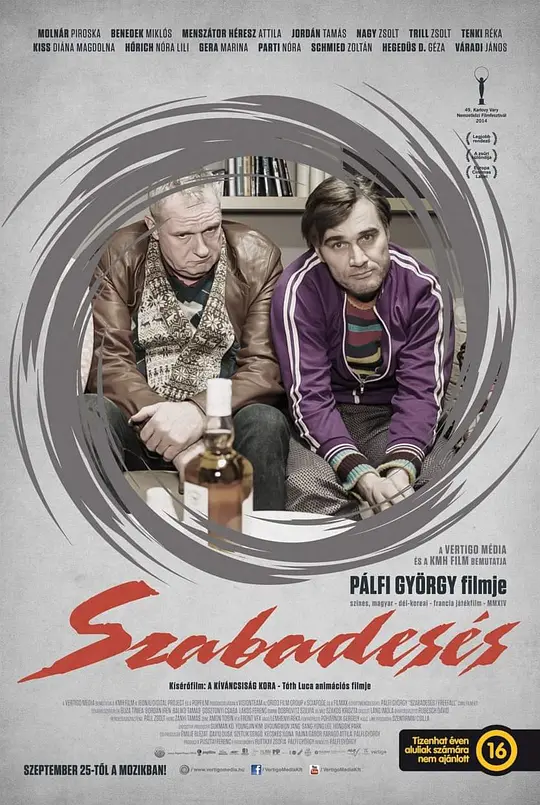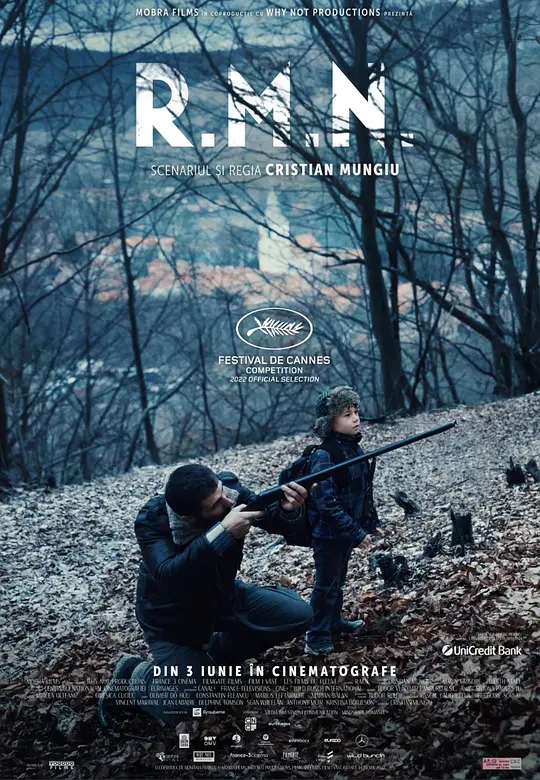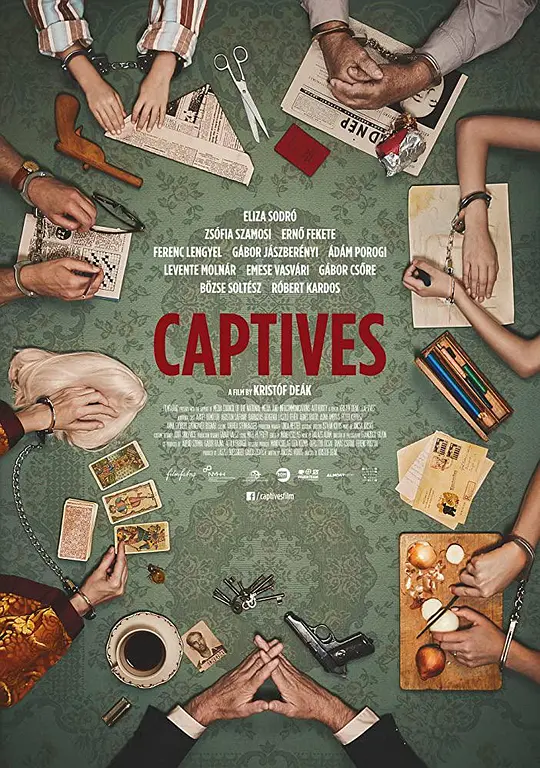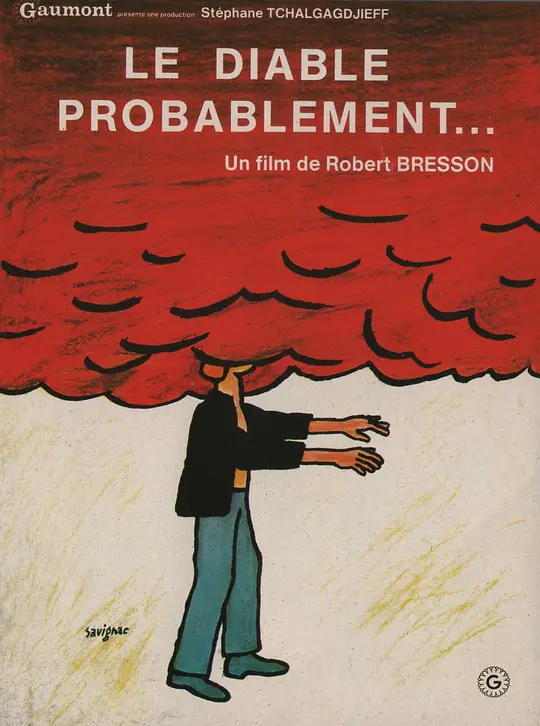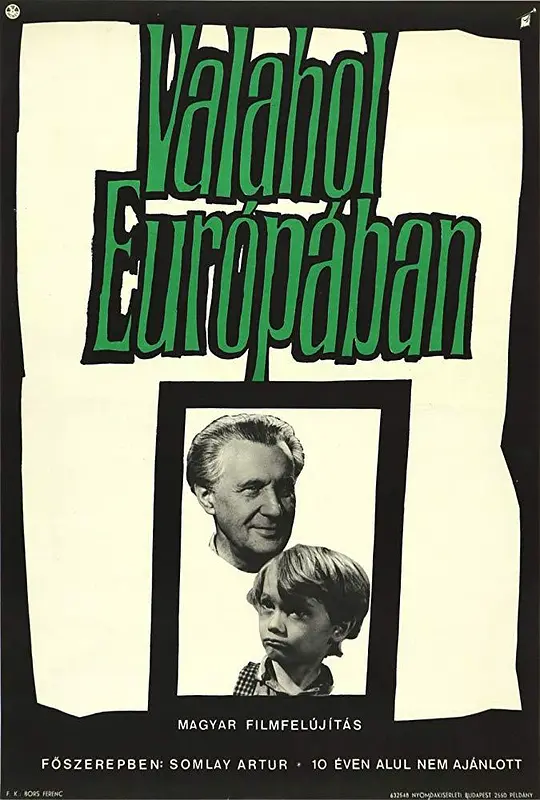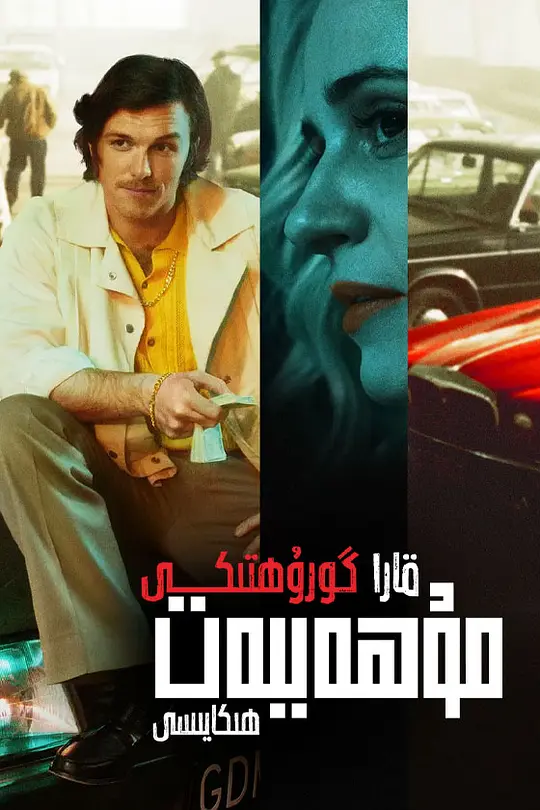搜索词:Miklós Horváth
322档案
Václav Lohniský,卢茜娜·温尼斯卡,约瑟夫·阿布汉姆,米罗斯拉夫·马哈切克,弗兰季塞克·兹瓦里克,Vladimír Weiser,Emil Horváth St.,Viktor Blaho,Jana Svandová,Bozena Sérová,Marta Raslová,卡雷尔·奥古斯塔,Zdenek Blazek,Olga Chodáková,Milan Hrabinský,Michal Kozuch,米库拉斯·洛迪津斯凯,Anton Trón
Mannheim-Heidelberg International Filmfestival YearResultAwardCategory/Recipient(s) 1969 Won Grand Prize Dusan Hanák A government official in Czechoslovakia mistakenly believes he has cancer. He reasons his involvement in clandestine activities during the Stalin administration have fated him to die from a dreaded disease. He searches for inner peace as he feels the guilt of his past transgressions. This film tied for the Grand Prize at the Mannheim Film Festival in 1969. Slovak director Dusan Hanak was one of Czech cinema's brightest and best talents of the '60s and '70s, but because of censorship this was not manifest until the late '80s. Dusan made an impact on the film world with his auspicious debut 322 (1969). Though banned until 1988, when it was finally released, it earned international acclaim and the Grand Prix award at the Mannheim Film Festival. Hanak's sophomore effort, the documentary Obrazy Stareho Sveta/Image of an Old World (completed in 1972), was also not released until 1988 and neither was his 1980 film Ja Milujem, Ty Milujes/I Love You, You Love. Only Hanak's 1976 film Ruzove Sny/Rose-Tinted Dreams passed muster with censors and saw a timely release.
母亲与疯子们
Eszter Ónodi,蒂伯·加斯帕尔,Petra Hovanyecz,György Barkó,朱利·芭丝蒂,达努塔·沙弗拉尔斯卡,Bálint Adorjáni,Kata Bartsch,Péter Bozsó,Csege Buvári,Kincsö Buvári,Lilla Buvári,Villö Buvári,Bálint Bán,维拉格·巴拉尼,Katinka Cseke,安东尼·塞尔纳,Mari Csomós,Ibolya Csonka,卡塔琳·真哲希,Zsuzsa Horváth,维卡·
电影回顾了匈牙利风雨飘摇的20世纪。一位92岁的匈牙利女性在与五十多岁女儿的对话中,回顾了她惊心动魄的一生。她成长于匈牙利动荡的年代,与一位帅气的军人一见钟情,为了避免战争的冲突,她一生搬家了27次。电影以幽默和温情的方式来呈现了这段不凡的个人经历。它不仅是一位女性的个人史,亦是匈牙利的国家历史。
衰人奇遇
Áron Ferenczik
Aron,快將三十,剛畢業,缺工作,連找工也由老媽寫CV,唯一成就是有個可愛女友,結果女友背他劈腿,人生至此已走至頹廢盡頭。每次想靜靜哀悼戀情,總被閒人瑣事纏身,面容呆滯,生活失焦,淪為他人世界的路人甲。直至一次酒後胡塗,錯手刷卡買下機票,遠離家鄉布達佩斯的陰霾,才在異國的陽光下重拾節奏。 匈牙利新進導演以平實手法,不以花巧鏡頭,靠著跳脫的敘事節奏及精準的人物呈現看似即興的安排,幽默有趣地用鏡頭捕捉現實社會下的「偽文青」心底事。這部魅力過人的清新首作,在各大歐洲電影節大放異彩,成為不少影評人的特別推介。 2014 意大利都靈電影節-評審團特別獎 2014 法國南特國際電影節
我那美好残酷的青春
塔马斯·珀咖,奥丝·图思,卡塔·韦伯,Lajos Ottó Horváth,András Réthelyi,Károly Kuna
2003年布鲁塞尔欧洲电影节最佳影片奖 2002年欧洲电影奖提名“年度发现”奖 2002年洛加诺国际电影节最佳处女作影片银豹奖 介绍:彼得刚出狱回到家乡,自觉好日子又开始了。他在姊姊的洗衣店见到正在生产的玛雅。冀望靠一个孩子留住生命中某些东西的姊姊,买下玛雅生的男婴。狂野不羁的玛雅和彼得周遭的人都牵扯不清,彼得跟她终日斯混,也深深被她吸引。等到玛雅想要回儿子,彼得发现自己卡在她和姊姊之间左右为难,觉得美好时光彷佛已逐渐消失。
法拉兹家族
米盖尔·赫尔南,苏珊娜·阿巴图纳·戈麦斯,佩德罗·卡萨布兰科,诺拉·纳瓦斯,费尔南多·特赫罗,艾格尔·纳尔,奥马尔·阿尤索,马哈姆·胡里,薇琪·亚拉可,维拉迪米尔·克鲁兹,Amparo Piñero,Adam Jeziersky,Roberto Lezana,Nahuel Picone,Cristina Ureta,José Florencio Piñero,Selim Clayssen,Hamid Krim,Héctor Noas,Christophe Klostermann
影片讲述的是奥斯卡梦想开一家健身房的故事。他最终进入了太阳海岸的世界,这一切都是由于法拉德一家,这个家庭为他提供了一个未来,但却带来了最意想不到的交易:武器贩运。
自由落体
皮洛斯卡·莫尔纳,Miklós Benedek,塔马斯·约旦,Csaba Gosztonyi,玛丽娜·格拉,Csaba Györy,Dániel Csengery,迪亚·麦格唐娜·凯斯
自殺不成的老婦人,屢次從頂樓一躍而下卻無法如願以償,只好再次跛腳步上公寓頂樓。每經過一層樓,便經過一段光怪陸離。七層樓,七種人生樣貌,詭異至極、毫無邏輯,以黑色幽默之姿一窺當代生活,笑看人性的虛偽及庸俗,笑到最後卻忍不住心底發毛。 匈牙利導演喬治帕爾菲二○○二年初試啼聲,便以處女作《田園風光》一炮而紅。其後的《百年癲狂》更顯瘋狂不羈,在坎城引發熱議。擅於揉合奇想與創意,以魔幻寫實著稱的喬治帕爾菲,新作《公寓瘋光》影像同樣奇幻詭譎,戲劇調度與剪輯美學更貼近夢境囈語。從喜劇、科幻到神話,從歡笑、驚悚到恐懼,在風格迥異的七部短片裡,導演也展現其對不同類型的遊刃有餘。
核磁共振
马林·格里戈利,朱迪思·斯泰特,Macrina Barladeanu,Orsolya Moldován,Rácz Endre,József Bíró,Ovidiu Crisan,Zoltán Deák,切拉塞拉·约西费斯库,安德烈·芬蒂,Bacs Miklos,Alin Panc,Victor Benderra,Amitha Jayasinghe,Gihan Edirisinghe,Nuwan Karunarathna,Kovacs Levente Jr.,Varga Csilla
圣诞前夕,结束国外工作的马蒂亚斯,返回到他土生土长的罗马尼亚特兰西瓦尼亚多民族山村。马蒂亚斯一边担心着儿子鲁迪从罗马尼亚母亲安娜那里受到的教育,一边渴望着再次见到他的匈牙利前情人奇拉。 他发现他的儿子和整座村庄都笼罩在一种奇怪的非理性恐惧和不安的阴影之下。当奇拉管理的面 包店雇佣了两名外国工人时,根深蒂固的冲动和怨恨涌现,冲突横生和情绪爆发,社区和平的表象被打破。
是谁来敲门
Eliza Sodró,索菲娅·绍莫希,Ernõ Fekete,列文特·莫尔纳,Ádám Porogi,Ferenc Köles,Anna Györgyi,Miklós Béres
When Fuchs starts his new job as a teacher in a prison school, replacing the old and unconventional teacher Berger against her will, he is forced to confront his biggest fear, triggered by the mysterious, withdrawn inmate Samira.
很可能是魔鬼
Antoine Monnier,Tina Irissari,亨利·德莫布朗,Laetitia Carcano,Nicolas Deguy,Régis Hanrion,Geoffroy Gaussen,Roger Honorat,Vincent Cottrel,Laurence Delannoy,Laetitia Martinneti,Martin Schlumberger,Thadee Klossowsky,Miguel Irissari,Nadine Boyer-Vidal
该片以回忆的方式记叙了一个忧郁的巴黎青年人努力寻找现代大都市生活的意义和生命的故事。他在宗教,政治中找不到幸福和生活的理由,甚至在他自己身上也找不到。于是他把时间花在两个女人的身上,希望这样能够永久联系在一起。
欧洲的某个地方
Artúr Somlay,Miklós Gábor,Zsuzsa Bánki
Somewhere in the remote region, the war ends. In the midst of ruined cities and houses in the streets, in rural hamlets, everywhere where people still live, are children who have lost their homes and parents. Abandoned, hungry, and in rags, defenseless and humiliated, they wander through the world. Hunger drives them. Little streams of orphans merge into a river which rushes forward and submerges everything in its path. The children do not know any feeling; they know only the world of their enemies. They fight, steal, struggle for a mouthful of food, and violence is merely a means to get it. A gang led by Cahoun finds a refuge in an abandoned castle and encounters an old composer who has voluntarily retired into solitude from a world of hatred, treason, and crime. How can they find a common ground, how can they become mutual friends? The castle becomes their hiding place but possibly it will also be their first home which they may organize and must defend. But even for this, the price will be very high. To this simple story, the journalist, writer, poet, scriptwriter, movie director, and film theoretician Béla Balázs applied many years of experience. He and the director Géza Radványi created a work which opened a new postwar chapter in Hungarian film. Surprisingly, this film has not lost any of its impact over the years, especially on a profound philosophical level. That is to say, it is not merely a movie about war; it is not important in what location and in what period of time it takes place. It is a story outside of time about the joyless fate of children who pay dearly for the cruel war games of adults. At the time it was premiered, the movie was enthusiastically received by the critics. The main roles were taken by streetwise boys of a children's group who created their roles improvisationally in close contact with a few professional actors, and in the children's acting their own fresh experience of war's turmoil appears to be reflected. At the same time, their performance fits admirably into the mosaic of a very complex movie language. Balázs's influence revealed itself, above all, in the introductory sequences: an air raid on an amusement park, seen in a montage of dramatic situations evoking the last spasms of war, where, undoubtedly, we discern the influence of classical Soviet cinematography. Shooting, the boy's escape, the locomotive's wheels, the shadows of soldiers with submachine guns, the sound of a whistle—the images are linked together in abrupt sequences in which varying shots and expressive sharp sounds are emphasized. A perfectly planned screenplay avoided all elements of sentimentality, time-worn stereotypes of wronged children, romanticism and cheap simplification. The authors succeeded in bridging the perilous dramatic abyss of the metamorphosis of a children's community. Their telling of the story (the scene of pillaging, the assault on the castle, etc) independently introduced some neorealist elements which, at that time, were being propagated in Italy by De Sica, Rossellini, and other film artists. The rebukes of contemporary critics, who called attention to "formalism for its own sake" have been forgotten. The masterly art of cameraman Barnabás Hegyi gives vitality to the poetic images. His angle shots of the children, his composition of scenes in the castle interior, are a living document of the times, and underline the atmosphere and the characters of the protagonists. The success of the picture was also enhanced by the musical art of composer Dénes Buday who, in tense situations, inserted the theme of the Marseilaise into the movie's structure, as a motive of community unification, as an expression of friendship and the possibility of understanding. Valahol Europaban is the first significant postwar Hungarian film. It originated in a relaxed atmosphere, replete with joy and euphoria, and it includes these elements in order to demonstrate the strength of humanism, tolerance, and friendship. It represents a general condemnation of war anywhere in the world, in any form.
